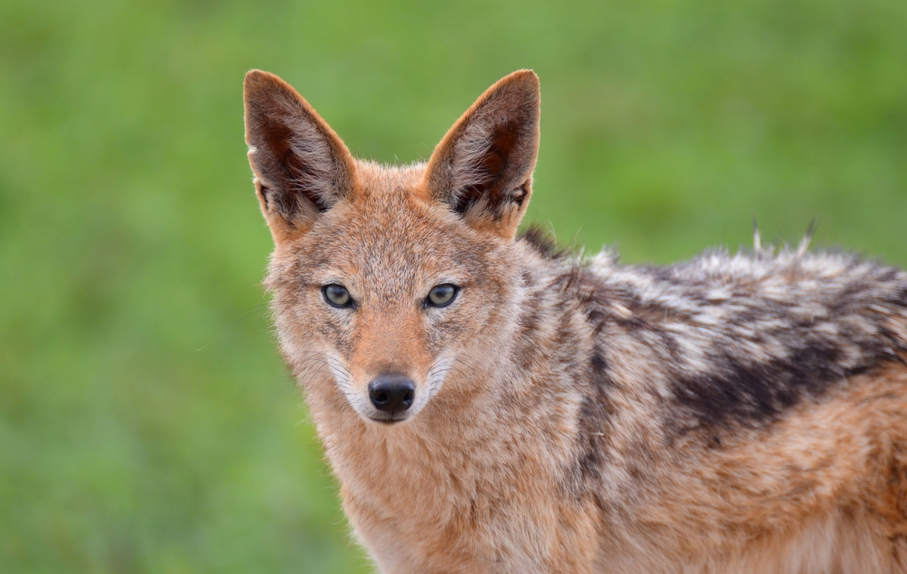A nine-year-old boy was suspected to have been killed by jackals in Murshidabad’s Farakka on Sunday night, the horror brought to light by a neighbour who saw the child’s “half-eaten body” being dragged by the pack of seven.
Forest officials and villagers said Zeeshan Sheikh had been picking grass to feed the family’s goats in Gopalnagar village when the animals pounced on him.
Although jackals have been known to attack people, it is rare for them to prey on humans, one forest officer said, adding the pack could have been hungry and, therefore, desperate. “We are in shock. We always knew poultry and small animals are in danger (from jackals) but we never knew they could eat up a boy,” said a neighbour of Zeeshan.
Rafiq, a village youth, spotted the half-eaten body of Zeeshan being dragged by jackals barely 300 metres from Gopalnagar around 7pm on Sunday.
“I ran screaming with a hammer but it was too late. I am surprised that we did not hear him (Zeeshan) scream. By the time I reached the spot, his abdomen and throat had been ripped apart. Half-eaten flesh and internal organs were lying around,” Rafiq said.
Zeeshan’s family and others arrived at the scene, alerted by Rafiq’s cries. “My nephew was dead. I could not bear to see it,” said Ismail Sheikh, Zeeshan’s uncle.
The incident caused panic with villagers saying that they had never heard of a jackal preying on a human being. “I will not allow my children outside after dark,” said one villager. Others spoke of starting “patrolling” groups to prevent such incidents.
Forest officials said they had heard about wild jackals from neighbouring Jharkhand prowl the area a few months ago. “This is an unusual case. It could be that the jackals grew extremely hungry and decided to hunt in a group. It is also possible that they had never encountered human habitation,” said Prabhas Mondal, a Farakka forest official.
The horror may have caught Murshidabad by surprise but parts of eastern India have witnessed dozens of attacks by jackals over the past two decades.
A decade ago, wildlife biologists N.P.S. Chauhan and Naim Akhtar of the Dehra Dun-based Wildlife Institute of India had documented 220 jackal attacks on humans in Chhattisgarh’s Bilaspur between 1998 and 2002, but no deaths.
In Bengal, some wildlife had a few years ago heard of jackals chasing a morning-walker in Hooghly’s Bandel before the animals were scared away by passers-by.
“Such behaviour would be considered unusual — jackals are not pack animals and typically keep away from people,” said Anindita Bhadra, a canine behaviour specialist at the Indian Institute of Science Education and Research, Calcutta.
“Is jackal behaviour changing in eastern India? This could be a possible subject for future research,” Bhadra added.










